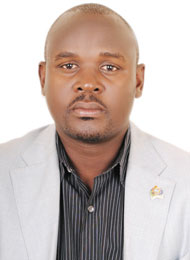An entrepreneurial marriage?
Pick a Saturday afternoon, any Saturday in Kigali. Take a walk by the KBC rondpoint (roundabout) from 2:30p.m to 5p.m. I bet you will find a wedding photo session underway.

Sam Kebongo

